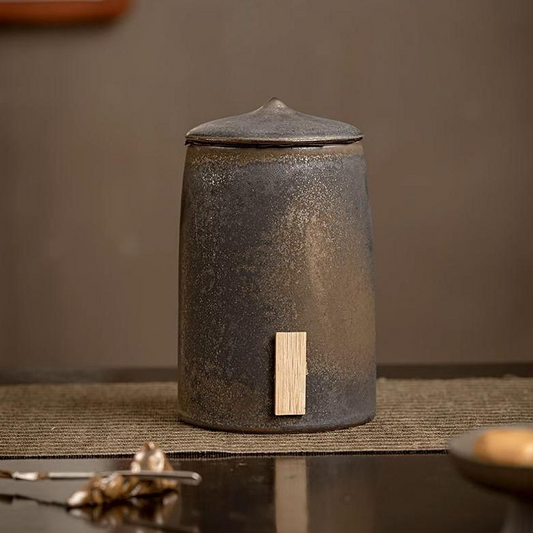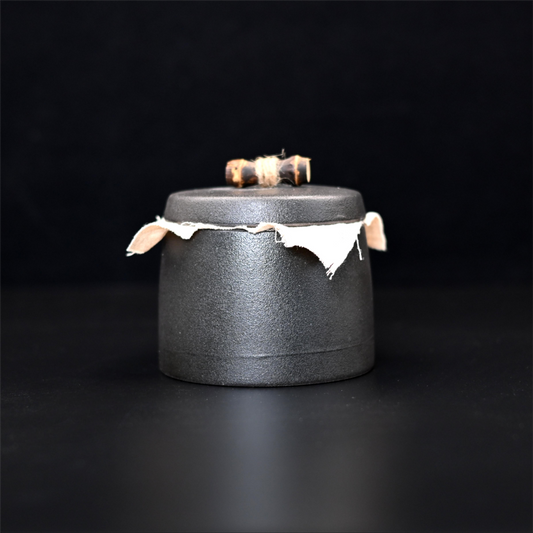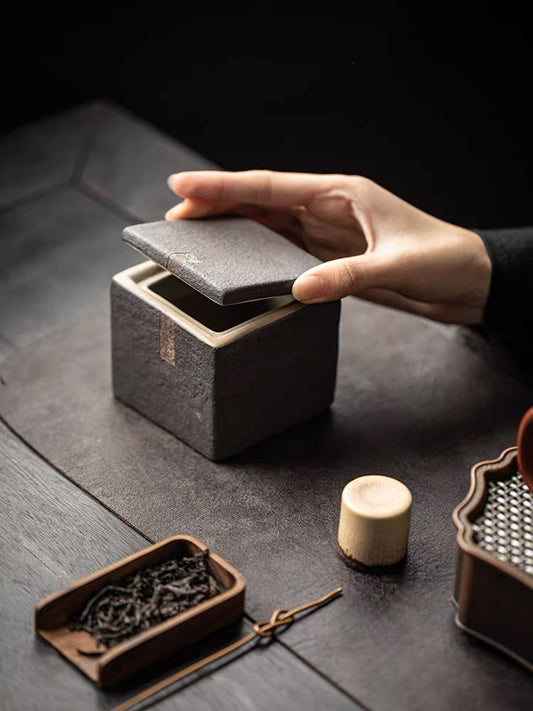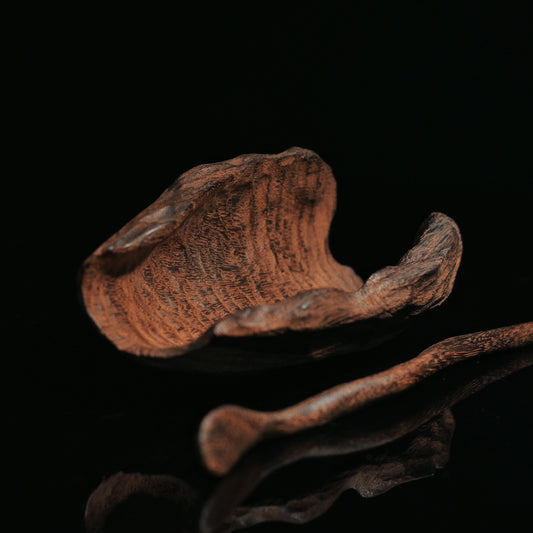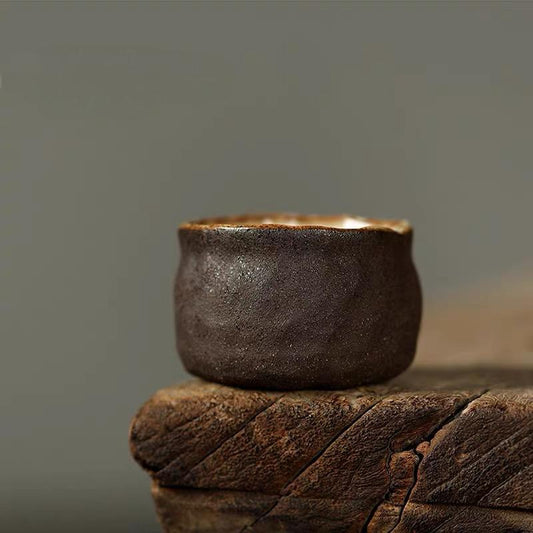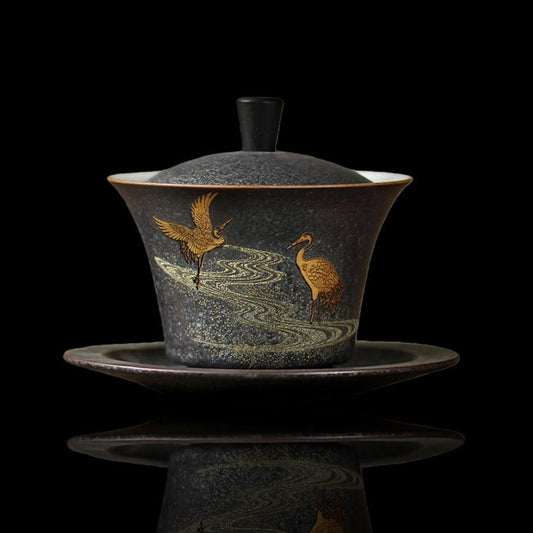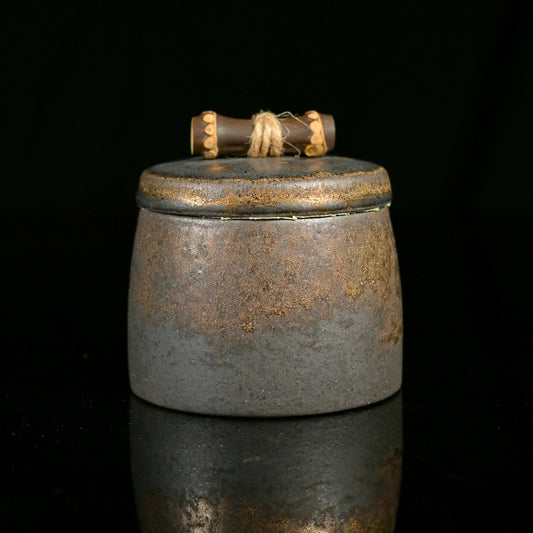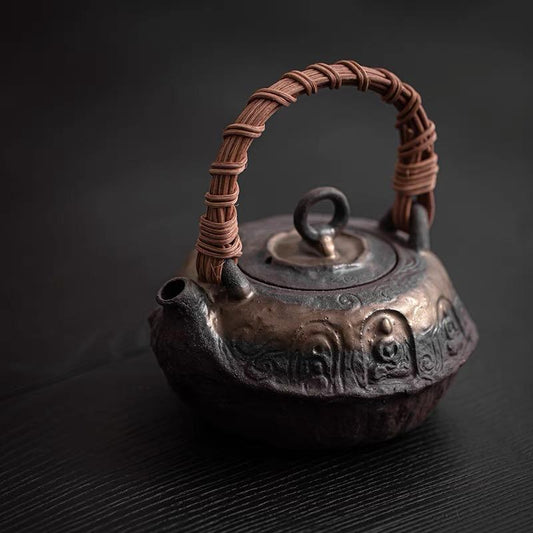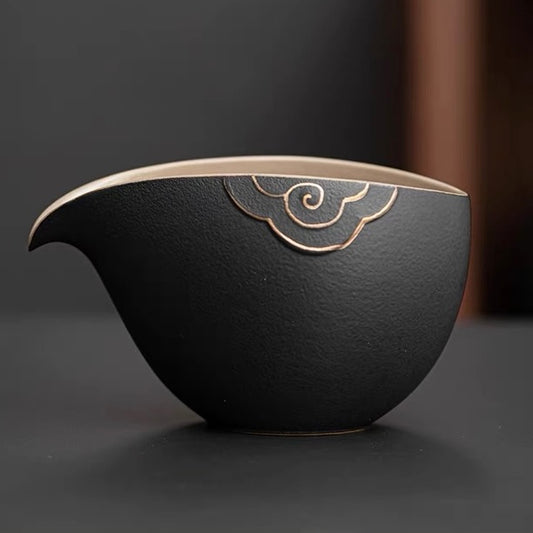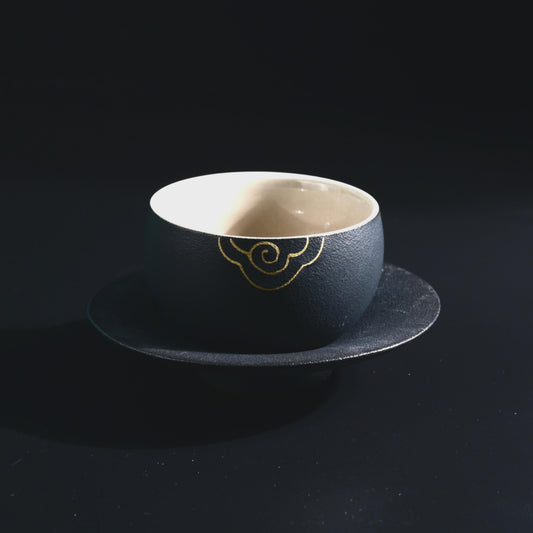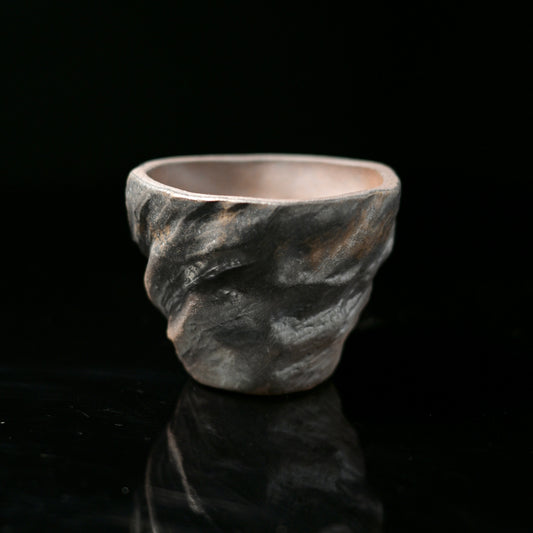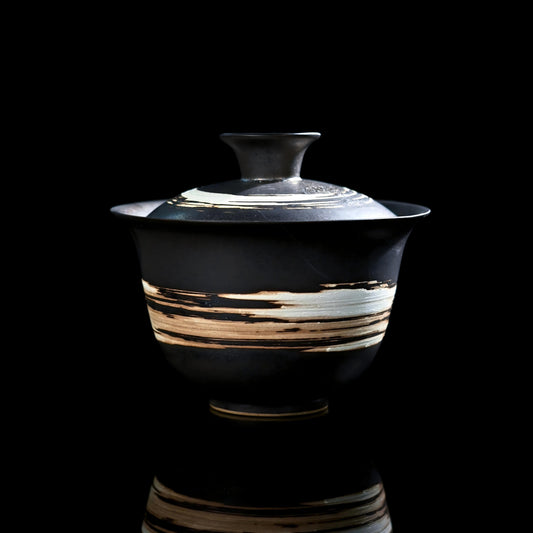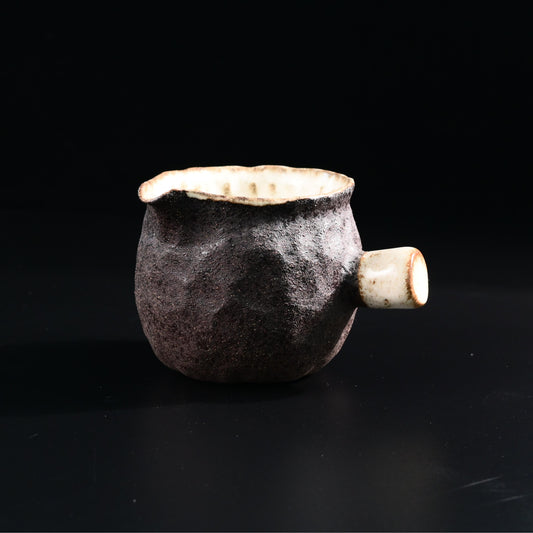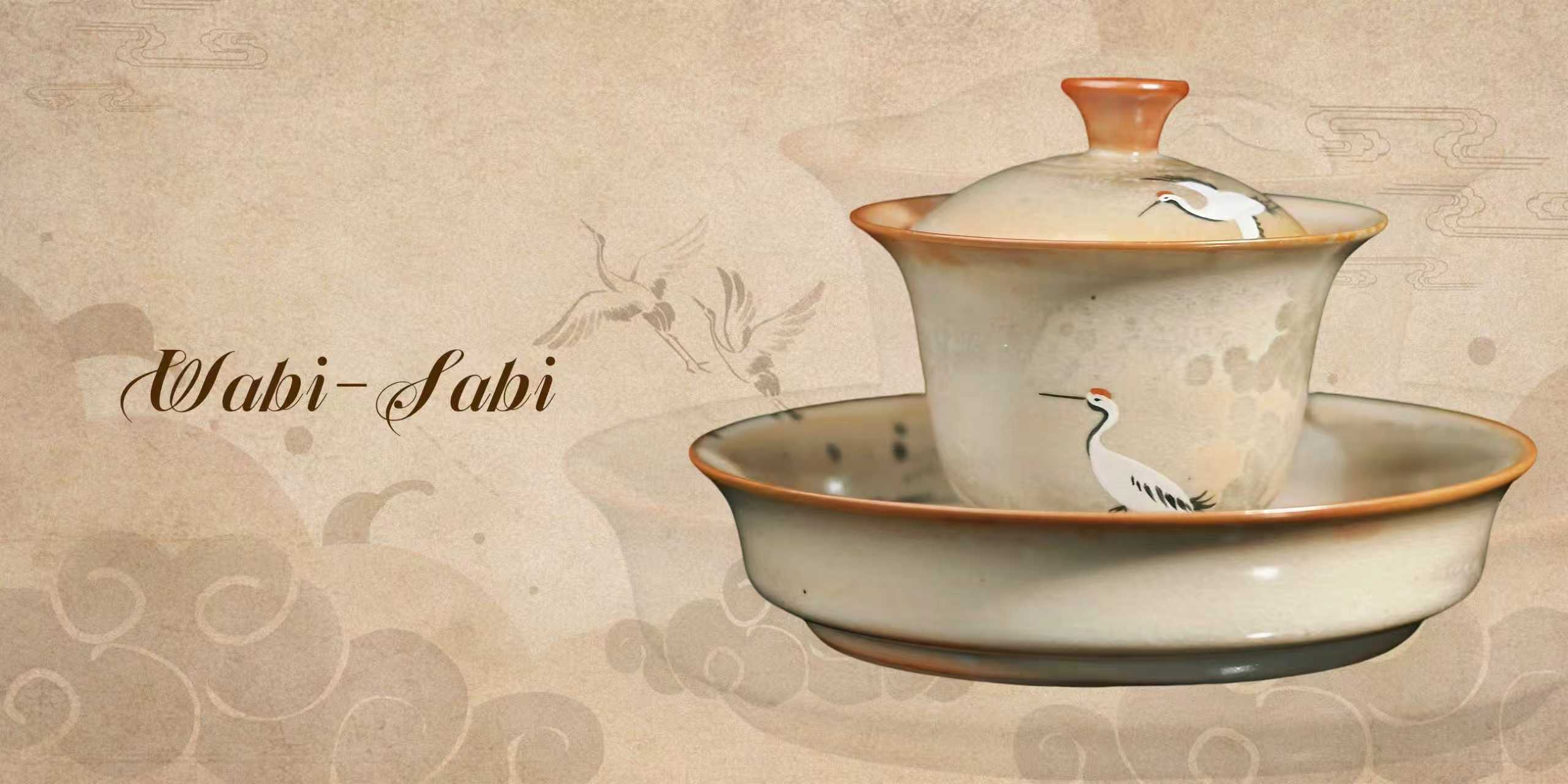
-
Vintage Style Large Capacity Airtight Ceramic Tea Caddy / Tea Can
2 reviewsRegular price $49.90 USDRegular price -
Retro Japanese Style Small Size Coarse PotteryTea Canister
2 reviewsRegular price From $38.99 USDRegular price -
Retro Pottery Square Tea Canister Made of Raw Clay
4 reviewsRegular price $55.00 USDRegular price -
Wabi-Sabi Handcrafted Wood-fired Coarse Clay Side-Handle Teapot / Tea Set
No reviewsRegular price From $35.00 USDRegular price -
Wabi-Sabi Handcrafted Wood-fired Coarse Clay Host Teacup / Guest Teacup
1 reviewRegular price From $35.00 USDRegular price -
Hand-Carved Wabi-Sabi Irregular Wooden Tea Scoop
No reviewsRegular price $89.00 USDRegular price -
Handmade wabi-sabi rough texture pottery retro teacup
No reviewsRegular price $28.00 USDRegular price -
Jingdezhen Handmade Vintage Gilded Double Crane Gaiwan
2 reviewsRegular price From $25.00 USDRegular price -
Vintage Gilded Chinese Small Stoneware Tea Caddy
No reviewsRegular price $38.99 USDRegular price -
Wabi-Sabi Coarse Clay Tea Waste Bowl (500ml) / Tea Rinsing Bowl
1 reviewRegular price $39.00 USDRegular price -
Wabi-sabi Style Rustic Clay Retro Handle Tea Pot and Alcohol Stove
No reviewsRegular price $149.00 USDRegular price -
Wabi-sabi Style Rustic Clay Tea Pitcher / Fairness Cup (Gong dao bei)
No reviewsRegular price $32.00 USDRegular price -
Wabi-sabi Style Rustic Clay Tea Cup with Coaster
No reviewsRegular price $32.00 USDRegular price -
Large Capacity (120ml) Wabi-Sabi Style Coarse Clay Wood-Fired Vintage Design Tea Cup
No reviewsRegular price $35.00 USDRegular price -
Wabi-Sabi Handmade Black Clay Slipware Gaiwan
No reviewsRegular price From $19.99 USDRegular price -
Wabi-sabi Style Coarse Pottery Fairness Cup
1 reviewRegular price $34.99 USDRegular price
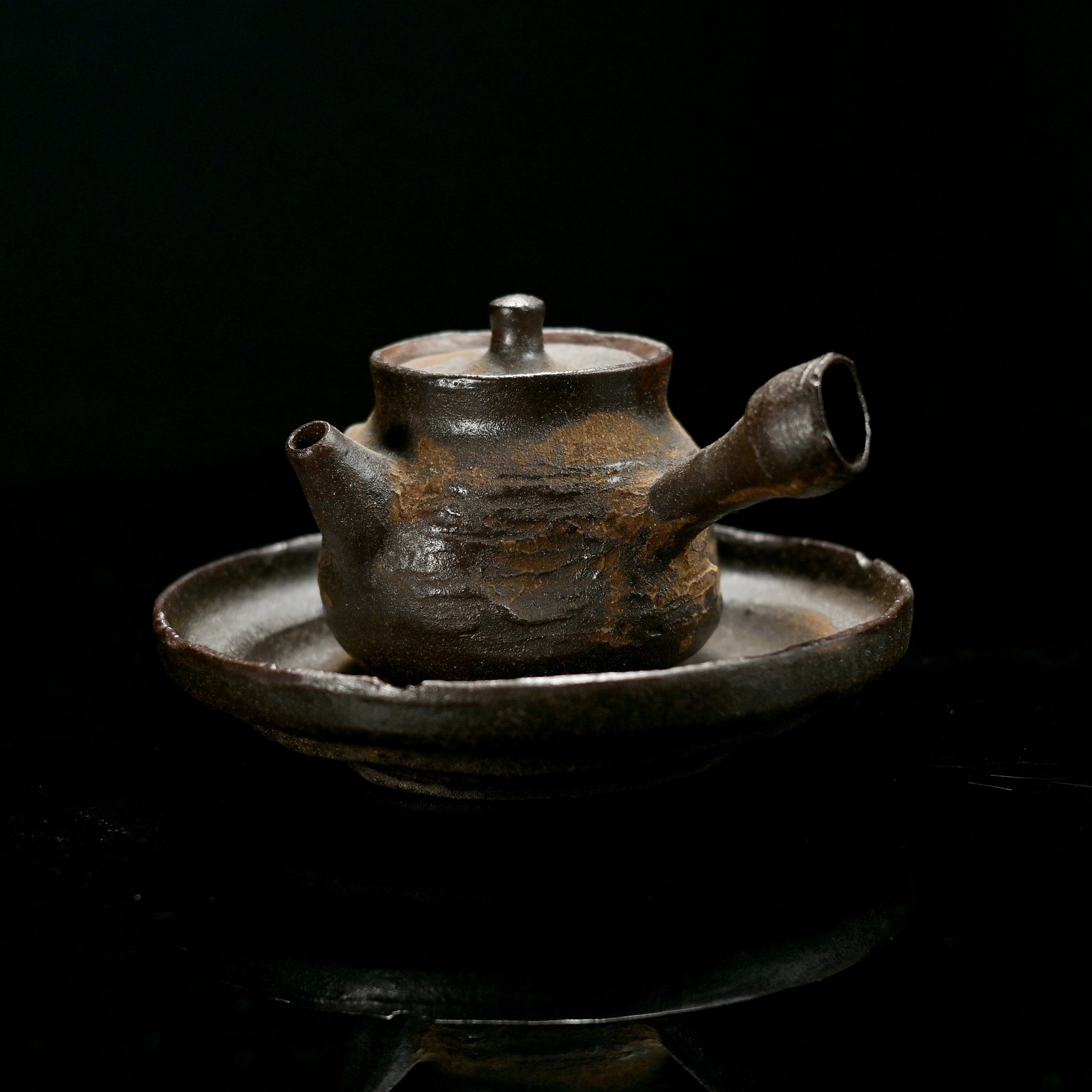
Collection: Wabi-Sabi
Learn More about Wabi-Sabi
What is Wabi-Sabi style tea ware?
Wabi-Sabi is a Japanese aesthetic philosophy that emphasizes simplicity, nature, imperfection, and the traces of time. Wabi-Sabi style tea ware typically features minimalist designs, rough textures, and asymmetrical shapes, reflecting the beauty of "impermanence" and "simplicity." Each piece of tea ware carries a unique personality, conveying a warm, peaceful atmosphere.
What is Wabi-Sabi in ceramics? It is an aesthetic that finds beauty in the imperfect, impermanent, and incomplete. Our wood-fired pieces feature natural ash glazes and organic forms that tell the story of fire and clay.
What are the characteristics of Wabi-Sabi style tea ware?
Natural Texture: Made from natural materials such as clay and stone, preserving their original textures and colors.
Imperfection: Emphasizes "beauty in imperfection," such as traces or small flaws left during the handmade process.
Minimalist Design: Simple and practical designs, free from excessive decorations, aiming for a humble aesthetic.
Patina of Time: Many Wabi-Sabi Tea ware pieces change subtly over time, reflecting the history and story of the object.
What type of tea ceremony is Wabi-Sabi style tea ware suitable for?
Wabi-Sabi style tea ware is ideal for tea ceremonies that value tranquility, deep thought, and nature. It is especially suited for slow tea tasting, meditation, and other tea culture practices that foster a relaxed and introspective atmosphere. While enjoying tea, one can also immerse in the natural beauty that these teapots and cups bring.
How to clean Wabi-Sabi style Tea ware?
Since Wabi-Sabi tea ware is often handmade, its surface may have small imperfections and irregular textures, so extra care is needed during cleaning:
Gentle Cleaning: Use warm water and a soft sponge to clean; avoid harsh cleaning agents or steel wool that could scratch the surface.
Avoid Prolonged Soaking: Tea ware should not be soaked in water for long periods as it may absorb moisture, affecting its texture and longevity.
Regular Care: Periodically wipe the Tea ware with a soft cloth to maintain its natural shine and texture.
Does Wabi-Sabi tea ware require special maintenance?
Tea wares of Wabi-Sabi Style are mostly made of coarse clay without using glaze, they may appear rustic, it still requires some attention for proper care:
Avoid harsh impacts to prevent breakage.
Do not expose tea ware to direct sunlight for extended periods to avoid fading or cracking.
Keep tea ware dry and avoid storing it in humid environments.

